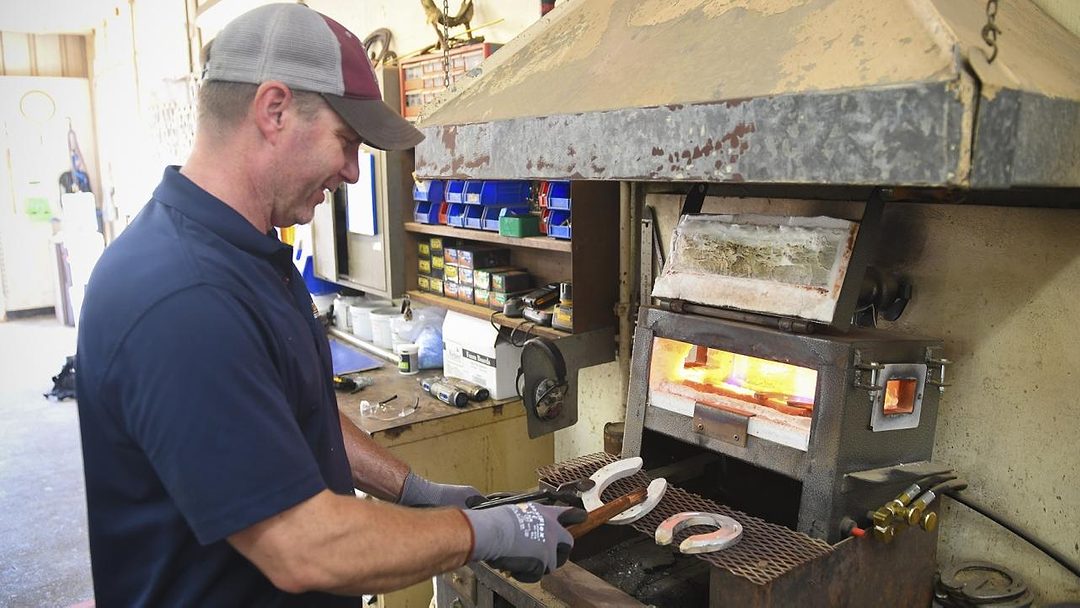Farriery has historically been rooted in practice-based approaches, often largely reliant on visual observations and anecdotal evidence. There is a movement to bring more data-driven science to the art of caring for horses’ hooves, and University of California, Davis, veterinary hospital farrier Shane Westman is a big proponent.
With a keen interest in research and the opportunities available to him through his position at the UC Davis School of Veterinary Medicine, Westman recently earned a Graduate Diploma in Equine Locomotor Research (GradDip ELR) through London’s Royal Veterinary College.
“My goal is to utilize these new skills to help with my everyday practice at the university,” Westman says. “Combining these objective approaches with advanced equipment at a state-of-the-art facility like the UC Davis veterinary hospital could help expand the knowledge base of what we do as farriers.”
The final module of the course requires participants to undertake an original research project. Westman’s study, formally titled “Effect of an adhered fiberglass and methyl methacrylate solar-hoof casting technique on stabilization of type III distal phalanx fractures,” investigated a hoof casting technique for stabilizing coffin bone fractures. This novel approach is a technique that he learned from a fellow farrier that specializes in racehorses.
Westman says that it has been used successfully in the clinic, but the aim of his study was to collect data to determine if the glue and fiberglass material that is bonded to the hoof sole and hoof wall (not just wrapped around the hoof) stabilized the bone in the hoof capsule. He plans to submit his findings to the journal Veterinary Surgery.
To complete this research, Westman worked closely with UC Davis equine surgery residents Drs. Tom Cullen, Thomas Bergstrom, and Lisa Edwards, with guidance from Research Engineer Tanya Garcia-Nolen, under the mentorship of Dr. Susan Stover, director of the J.D. Wheat Veterinary Orthopedic Research Laboratory.
“Shane’s vision was realized as a result of his ambition and innovation, along with the resources, people, equipment, and facilities at UC Davis that enable these types of research projects,” said Stover, a member of the International Equine Veterinarian Hall of Fame. “The team environment supports learning and facilitates advances on many levels.”
The knowledge that Westman gained through this program will provide UC Davis veterinary students, residents, faculty, and patients with access to advanced approaches to clinical care.
“I want to use this new knowledge and the tools and resources that I have at the university to expand the knowledge base of what we do as farriers,” Westman says. “I really enjoy helping the students, residents, and faculty with research ideas and implementation, and look forward to being a more valuable contributor to the team.”
Learn More
- Shoeing Collateral Ligament Injuries: Reducing tension on the injured soft tissue is vital in rehabilitation.
- UC Davis Treats White Line Disease with Surgical Laser: Innovative approach eliminates previously undetectable pockets of bacteria and fungus.
- How to Avoid Debt in a Farrier Practice: If you control your debt, you control your life. Not all debt is bad, like a lot of gurus will have you believe, especially when you’re running a small business. Sometimes, you have some stuff called good debt, but you just have to be able to control it.







